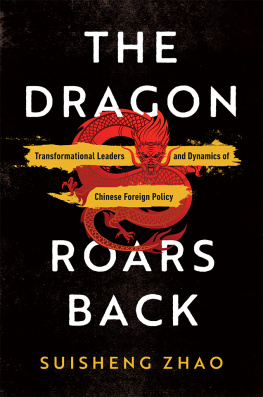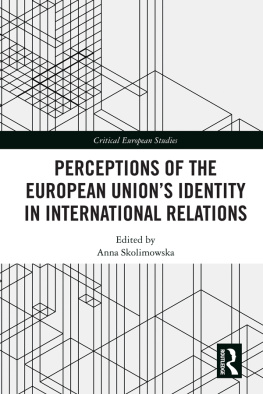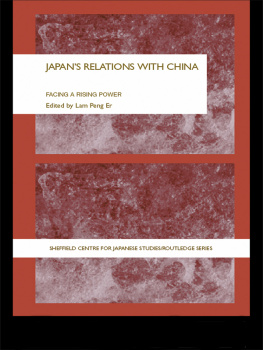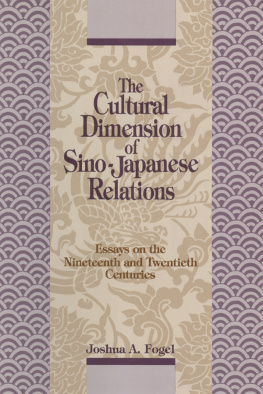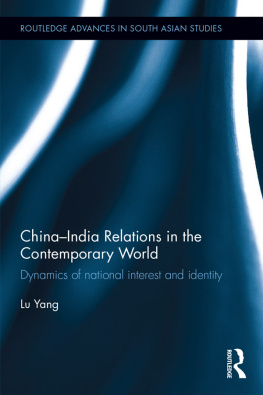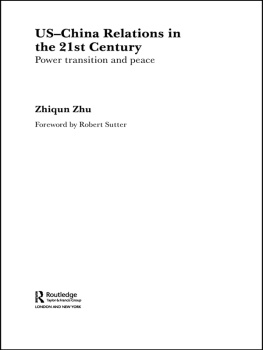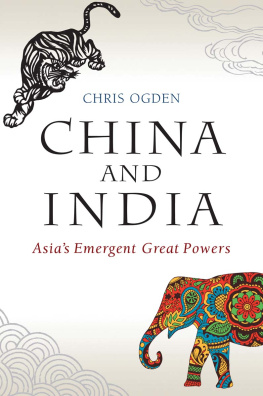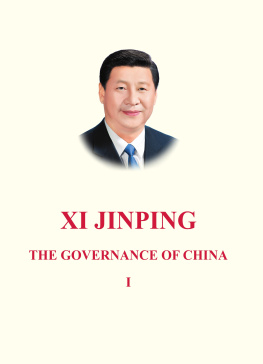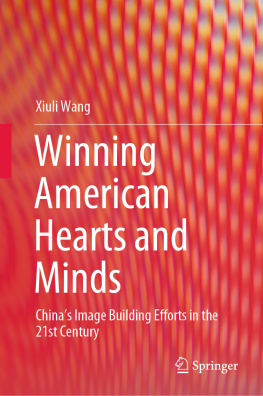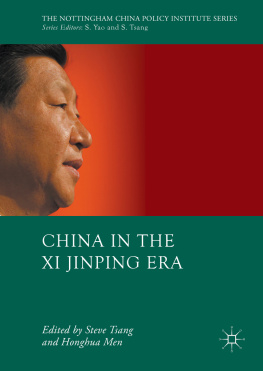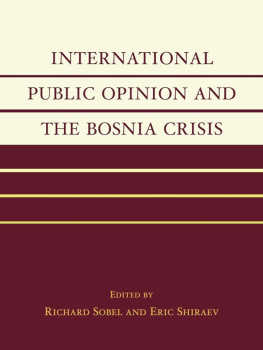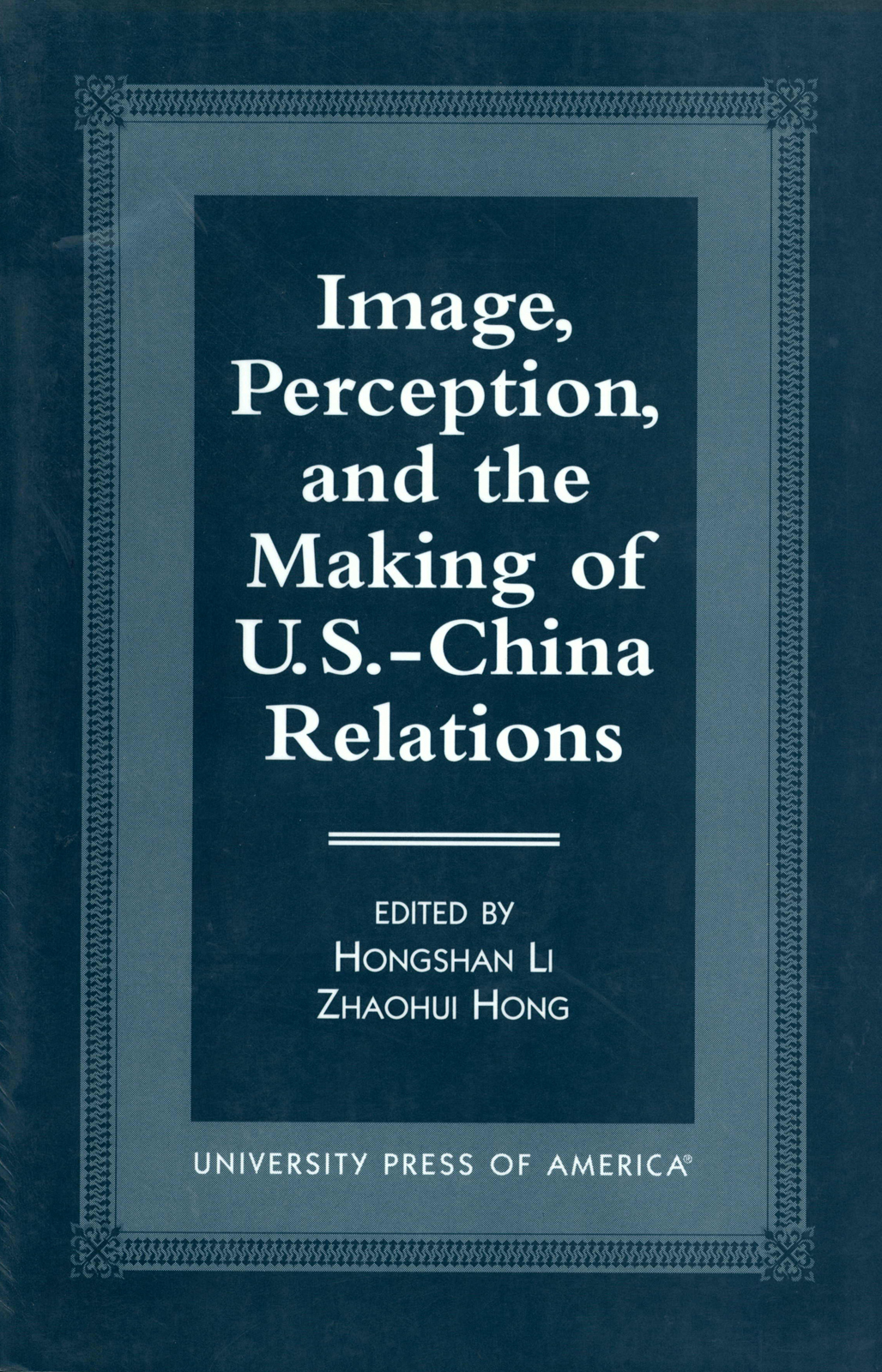Acknowledgments
The completion of a volume on a significant subject from a multidisciplinary perspective requires not only close cooperation among participating individuals, but strong support from professional organizations. About half of the chapters in this volume were originally presented at the international conference on U.S.-China relations, initiated by Association of Chinese Professors of Social Sciences, jointly sponsored by Chinese Historians in the United States and other organizations, and financially supported by the Ford Foundation, at University of Maryland in October 1996. The other half were contributed mostly by members of the Chinese Historians in the United States who chose to base their essays upon papers presented at other conferences, articles published in journals, book chapters, and Ph. D. Dissertations. Therefore, the editors want to thank all contributors as well as the Association of Chinese Professors of Social Sciences in the United States and the Chinese Historians in the United States whose professional activities and unfailing support have made the cooperation among scholars in different academic fields possible and fruitful.
Special thanks should go to the staff members of the Duplicating Services, Kent State University-Tuscarawas Campus. Always warm and capable, they have provided unmatched clerical and technical support.
Hongshan Li
March 18, 1998
Note on the Contributors
Hongshan Li, assistant professor of history at Kent State University, Tuscarawas Campus, is author of a number of articles published in such journals as The Twentieth Century China (formerly Republican China), The Journal of Contemporary China, Modern China Studies, The Chinese Intellectual, Chinese Historians, and The Journal of World History. He is also the co-editor of China and the United States: A New Cold War History (1997). He is the president of the Chinese Historians in the United States, 1997-1999.
Kailai Huang earned his Ph. D. in history from State University of New York at Binghamton. His dissertation was titled Myth or Reality: American Business Opinion on the China Trade, 1949-1980. He is now an assistant professor at North Adams State College, Massachusetts.
Yanmin Yu is currently an assistant professor of communication studies at University of Bridgeport, Connecticut. Her research interest includes media and foreign policy, media and Sino-American relations, international and intercultural communication, and journalism ethics. She has published a number of essays in professional journals.
Mei-ling Wang, assistant professor in communication studies, teaches at the Social Science Department, Philadelphia College of Pharmacy and Science in Philadelphia. Her articles have appeared in Asian Journal of Communication and other professional journals. She is now working on a book project, Cross-cultural Communication: An Overview.
Junhao Hong is an assistant professor at the Department of Communication, State University of New York at Buffalo. His research interests include international communication, mass media and society, and television and film studies. He has published a number of research articles in major journals and several book chapters.
Jiafang Chen obtained his Ph. D. from Mississippi State University in 1992 with a dissertation entitled Relative-Stable Population Perspective and a Population Dynamics Model. He is currently a Research Scientist at the Gerontology Center, the University of Georgia. Demography, social change, homicide, suicide, crimes, and statistics are his major research fields. Some of his researches have been published by the National Institute of Justice.
Michael M. Sheng, with a doctoral degree from York University, Toronto, Canada, is an associate professor in history at Southwest Missouri State University. He is the author of Battling Western Imperialism: Mao, Stalin, and the United States which was published by the Princeton University Press in 1997. He has also published many articles on the Beijing-Moscow-Washington triangle relations.
Yawei Liu received his Ph. D. from Emory University in 1996 with a dissertation of The United States According to Mao Zedong: Chinese-American Relations, 1893-1976. He is now an assistant professor in history at DeKalb College, Atlanta, Georgia. He has published articles in many professional journals and co-authored Death of Hu Yaobang published by the Center for Chinese Studies, University of Hawaii, in 1990.
Guangqiu Xu, assistant professor of history at the Northwest Arkansas College, is author of more than 10 articles published in both China and the United States. His teaching and research interests are Sino-American relations in World War II and U.S. China policy. He served as the organizational director of the Association of Chinese Professors of Social Sciences in the United States, 1995-1997.
Simei Qing is an assistant professor of history at James Madison College of Michigan State University. Her primary research interests are Americas China policy in World War II, Sino-American relations in the Cold War, and political economy between the two countries. She has published many articles and book chapters in U.S.-China relations.
Liping Bu is an assistant professor in history at West Virginia State College. Her research fields include 20th century U.S. history and Modern Chinese history. She has contributed many entries to a few encyclopedias and published articles in a number of professional journals.
Zhaohui Hong is an associate professor of history at Savannah State University of Georgia. He has authored The Themes of the Social Economic Transition: Reinterpretation of American Modernization (1994) and Changing Reputations of Land Speculation on Western Development (1995). He is also a co-editor of In Search of A Chinese Road Towards Modernization: Economic and Educational Issues in Chinas Reform Process (1996). He has published more than 40 refereed articles on U.S. agricultural history, Chinas rural reform, comparative modernization, and U.S.-China relations.
Xiaobing Li is an assistant professor of history and associate director of Western Pacific Institute at the University of Central Oklahoma. He is the author of Diplomacy Through Militancy in the Taiwan Straits (1993), coeditor of Major Events in the 20th Century (1994), and China and the United States: A New Cold War History (1997). He also has published numerous articles and translations. He was the president of Chinese Historians in the United States, 1995-1997, and president of the Association of Chinese Professors of Social Sciences in the United States, 1997-1999.
Guoli Liu is an assistant professor in political science at the College of Charleston. His research interests include state-market relations, state-society relations, economic development and democratization, and United States relations with East Asia. His first book, States and Markets: Comparing Japan and Russia, was published by Westview in 1994. He is now working on another book manuscript, The Politics of Marketization: Comparing China and Russia.
1
Introduction: Image and Perception in U.S.-China Relations
Hongshan Li
Image and perception have always been essential in the making of U.S.-China relations. As results of direct and indirect contacts between the two peoples, image and perception not only reflect the ideology and self-image of each nation, but represent knowledge and understanding that one people have of the other. Because of their nature, national image and perception relate to U.S.-China relations, as Warren I. Cohen pointed out, by setting the broad context for policy making in Washington and Beijing. Therefore, the study of image and perception is the key to a better understanding of the making of U.S.- China relations.


